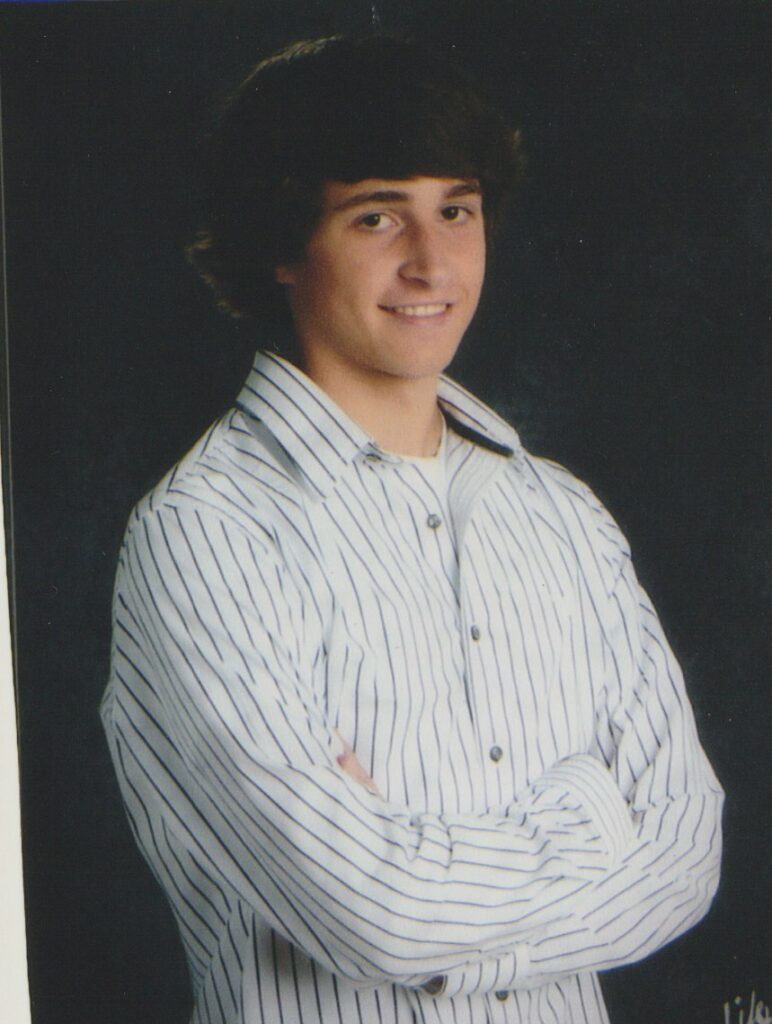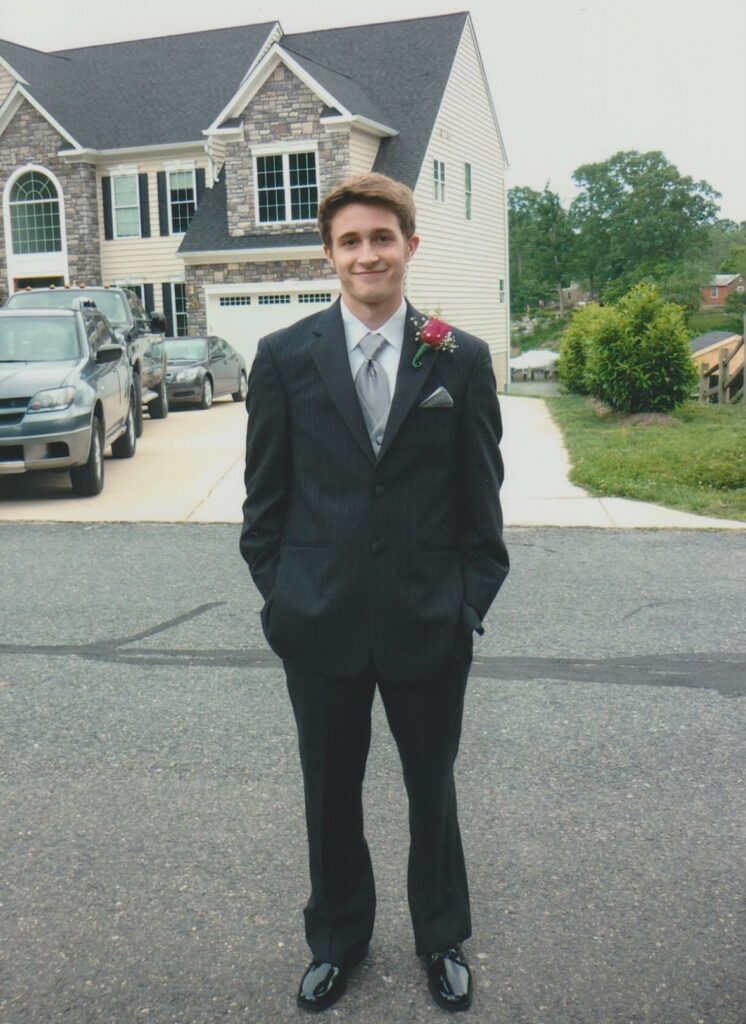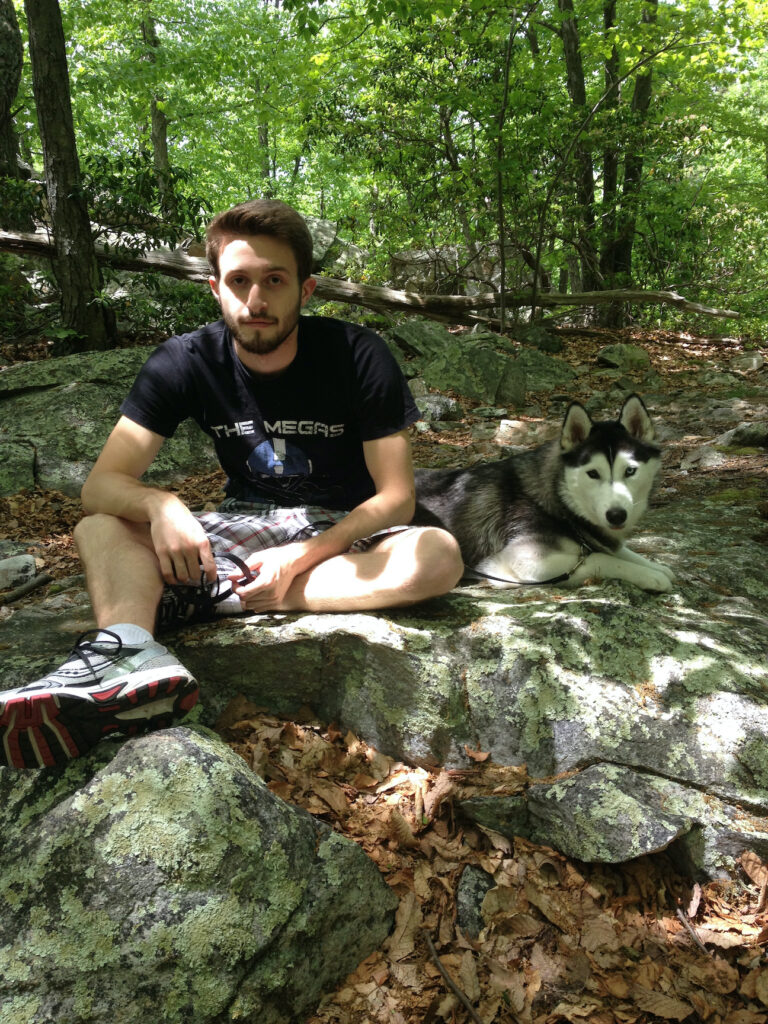One Day at a Time: How Wrongful Conviction Affects a Family
When a person is wrongfully convicted, the shock and trauma of the ordeal extends to their family. As family members grapple with the absence of their loved one —a spouse, parent, child, or sibling—they also have to navigate a bewildering criminal-legal system where appeals often take years and each prison visit adds another layer of trauma.
In 2014, MAIP client Curtis Morris was only 21 years old when he was wrongfully convicted of murder. We are preparing with co-counsel Latham & Watkins for his post-conviction hearing in April. For Curtis’s family, this hearing is the culmination of years of appeals, delays, and waiting. We spoke with Curtis’s parents, Curt and Vicky, and his sisters, Marissa and Kate, about how Curtis’s wrongful conviction has affected them.
Tell us about Curtis.
Marissa: He’s funny, witty, and very driven. Once his mind is made up, he will set out to do it. He accomplishes everything that he puts his mind to.
Kate: I agree with that; I would say he’s very stubborn. He’s taught himself Japanese in prison. If you want an indication of his personality, that’s a great example.
Curt: He’s my mini-me. We have a lot of common interests: motorcycling, engines, automobiles, and programming. He gets hyper-focused on anything that he’s interested in. He’s a good debater, he likes gaming, and he’s very smart—he has a memory like no one else has. And he always has to find the answer—he’s not satisfied until he knows what the truth is.
Vicky: He’s very loving, caring, sincere, and definitely a goofball at times. Just looking back on when he was little, I remember he would always have this ornery grin on his face. And I think he shares this trait with Curt, Kate, and Marissa: when he puts his mind to something, he won’t stop until he achieves his goal.
What are some of your fondest memories with Curtis?
Marissa: Seeing how excited he was to be an uncle! He passed on a lot of his favorite things to his nephew: Pokémon, video games, anime, computers, Power Rangers. I also think about all the good times we had just laughing, discussing our favorite video games, and staying up late watching Whose Line Is It Anyway?
Vicky: Gosh, the memories just go on forever. One that I was thinking about today was when I took a Jeep ride with him after he had just finished some work on the vehicle. I think he had switched to some larger tires. So we went for a ride to the grocery store, and coming back, we came close to having a near-death experience because we lost a tire that he didn’t tighten down correctly. Not really funny then, but we can laugh about it now.
Kate: When I think about memories from childhood, I always think about Christmastime, perhaps because our birthdays are so close to Christmas. (Curtis’s birthday is December 8.) I vividly remember lying outside of our bedroom doors on Christmas Eve and talking about what we would get, if we should sneak into the presents at all, and just getting into trouble together. Our parents’ bedroom was only a couple feet away, so we had to be really quiet.
What are some of Curtis’s hobbies? Does he have any favorite sports teams, books, movies, etc.?
Vicky: Well, he doesn’t like to watch sports, but he loves swimming. He did cross-country, track, and karate when he was younger, but swimming, I think he would say, is his sport. That’s his number one.
Marissa: He likes reading, particularly science fiction.
Curt: He likes the old sci-fi shows, like Stargate, Star Trek, and Star Wars. Anything that has time travel he really loves. He also loves Harry Potter and Lord of the Rings. And I think he’s more of a Marvel fan than a DC fan. More recently, he’s been talking about Dune, both the original and the remake.
Marissa: Yeah, for Christmas, I sent him the first three books in the Dune series. He would say he’s a slow reader, but I think he’s actually pretty fast. He’s already gone through all three books, and it’s only March.
Vicky: He’s always been a reader. I think it’s because we would read to our kids every night before bed, up until they were in middle school.
How did you feel on the day that Curtis was wrongfully arrested?
Curt: Completely and utterly devastated. We didn’t know where he was; we couldn’t get ahold of anybody; we didn’t know which jail he was in. It pretty much floored us. But worse than anything was not being able to reach out to him. He was alone, thrown into a situation that he had never dealt with before, unable to reach out, and we couldn’t help him.
Marissa: I think it was just a lot of disbelief. A lot of shock and denial. And it took time to sink in that it was real and that it had happened. Just confusion and all of those bad feelings.
Kate: Yeah, for me, I think it was a lot of shock and confusion. I didn’t fully understand what was happening or the extent of it all. And I had a very, very strong desire to somehow fix the problem, but you obviously can’t in that situation. I had never experienced that level of helplessness before, and that was very striking. That feeling has stuck with me throughout this whole process.
Curt: And the hardest part was that we couldn’t comfort him. We couldn’t tell him that it was going to be okay, that we were going to fight for him, that we would do everything we could until the truth came out and he was home.
Still, you believed that at his trial, he would be proven innocent. But that didn’t happen. That must have been devastating.
Curt: The day Curtis was wrongfully convicted was the hardest day of my life. Hearing the verdict, and seeing him sitting there, and knowing that you’re helpless. Not hopeless, helpless. Even then, you want to comfort him, but you can’t—they stand him up and walk him away. You’re able to say goodbye, but that’s it.
And then you realize that it’s not a thirty-day process. If you’ve never been involved in the criminal-legal system before, you really have no idea how it works. You’re trying to navigate the entire system, and it’s all foreign. It’s not like what you see on TV at all. We’ve been going through all these legal procedures for ten years now to get this April hearing in front of us. So it’s been a long, hard struggle, but Curtis has been a real champ, and every day, we just keep reassuring him, “You’re coming home.”
Vicky: “The fight is not over;” that’s what we keep telling him.
How has Curtis’s wrongful conviction impacted your daily lives?
Marissa: There is not a day that goes by where I do not think about him, and it’s like a cloud of sadness hanging over my daily life.
Curt: Our daily lives revolve around his schedule. He gets two visits a week; he gets at least one phone call a day. We live our lives making sure those things happen. We cancel events, we don’t do certain things, and we make sure our calendars are free and that his friends and sisters can visit him, because we’re his lifeline. We’re his sanity. And it’s been that way since day one. If [the prison] allowed visits seven days a week, we would be there seven days a week.
What are birthdays, holidays, and other milestones like without Curtis?
Marissa: He has missed seeing his niece and nephew grow up. His nephew is in high school now, taking IB and honors classes, and he still holds his love of Pokémon and video games that Curtis instilled in him. His niece is about to turn 10, but he has not seen a single one of her birthdays. Each milestone is another blow, another reminder that he isn’t here with us now.
Vicky: Outside of calling and visiting, there’s not much we can do for his birthday. We’ve tried sending him care packages before, so he can have a special treat or snack.
Curt: We also send him a new calendar every Christmas. We all take pictures throughout the year, so he’ll have photos of his niece and nephew, his dog, and different activities that the family has done. We put stuff he likes on there too, like cars and motorcycles. And we try to organize the photos by season, so for winter, he can see pictures of the family opening presents and his dog jumping into the snow.
How do you find strength and hold onto hope throughout this difficult and lengthy process?
Marissa: I know that he will be back home. I know that he will be able to see all the birthdays and see his niece and nephew again at home, instead of just talking to them on the phone. We make sure to talk in a positive light— it’s not “if you come back,” it’s “when you come back home.”
It’s definitely hard. I struggle a lot, especially after visits, knowing that he has to stay there and I can’t do anything to bring him home with me. There are times when depression hits me like a rock, but I just tell myself that if he can be strong and keep pushing, then I can do the same, and I have to, for him. I always remind myself that it will be over one day. He will be home, and one day we will get to enjoy those moments and laugh together as a family again and do all the things he loves. I just know he’s going to accomplish so much when he is back home.
Curt: It’s faith and prayer and reassuring Curtis. Like Marissa said, there are so many things we talk about doing with him. We have lists: riding adventure motorcycles across the US, going four-wheeling, going camping, hiking the Appalachian Trail. He has lost three grandparents, and we want to take him to the gravesite so that he can say goodbye to them, because he wasn’t able to do that before they passed.
But we keep reassuring him, “Keep hoping, because it’s one day at a time, and each day, you are one day closer to coming home.”
Vicky: Marissa hit the nail on the head. You go visit him, and you’re so excited to see him, and he’s so excited, but when it’s time to leave, it’s a total turnaround of feelings. His head immediately drops, and he’s very sad, and we’re very sad. We’re grateful that we get to see him as much as we do, but it’s very hard.
Like Curt and Marissa said, we try to encourage him to stay positive. And he does—he’s focusing on his schoolwork, and he’s tutoring again, which helps. He told me one time that he doesn’t want to “go stupid” while he’s in there.
Kate: I have hopes and dreams of what we’re going to do when he gets out, but my lack of faith in the system kind of overrides everything.
Curt: It’s been a rough and rocky road with many highs and lows. You get excited because there’s a glimmer of hope, and then you hit rock bottom again. Our friends tell us all the time, “We don’t know how you do it.” There’s really no other way to do it except to push forward. You can’t give up, because he’s your child. So there’s no stopping for us— we just try to move forward one day at a time and do everything that we possibly can. And when he comes home, we’ll be throwing a jubilee. There will be a party, and we will celebrate.
We are grateful to the Morris family for sharing their story with us.



